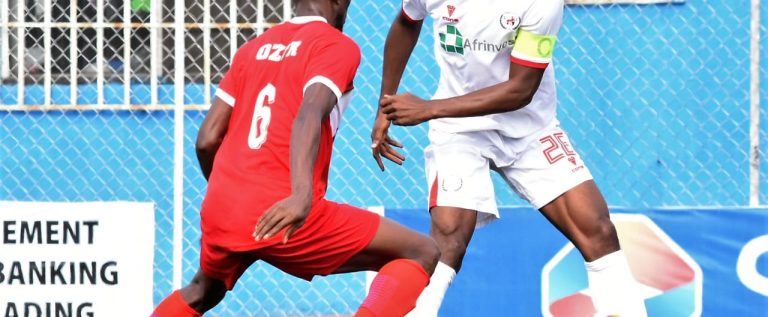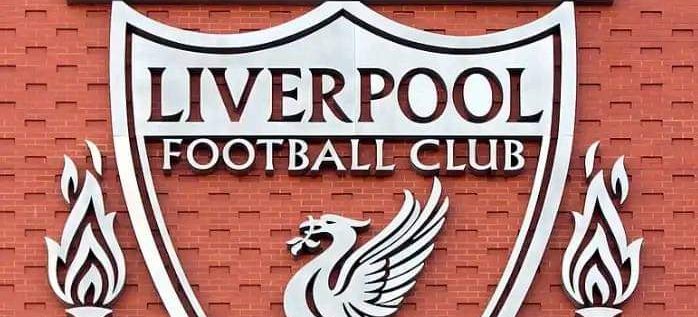The NFF, Sports Ministry’s Endless Crisis

![]()
By Segun Odegbami
Things are not very well with funding sports in Nigeria. The country was reminded again this past week, in Egypt and in France.
It has become extremely rare for any national team of Nigerian athletes to attend an international event and come back without a scandal of some sort around the management of funds, particularly the issue of non-payment of outstanding allowances and bonuses to athletes.
There are never enough funds to pay athletes’ allowances and bonuses. That’s exactly what reared its head again this past week with the two incidents that attracted international attention concerning Nigeria’s two senior national football teams, the Super Falcons at the FIFA Women’s World Cup, and the Super Eagles at AFCON 2019.
The Falcons would not vacate their hotel rooms after exiting the World Cup, insisting that all their outstanding allowances and bonuses must be paid in full.
The Eagles were a little more decorous. They had been uncharacteristically patient. Since arriving their camp in Asaba three weeks ago, coming to Egypt and playing their first match, they had received no payments of any sort and still kept their cool.
On the eve of their second match, they raised the temperature of the country. They would not attend the pre-match conference for the match against Guinea, and threatened to halt training until their outstanding one-match bonus and some previous daily allowances were paid.
The issue had always been that the NFF do not have the resources to fund all the various international football events they register the country for. They always depended on government for funding because the teams are national teams and the property of the Federal Government.
The NFF are right; the national teams are the ‘property’ of the Federal Government of Nigeria.
The national teams wear the national colours of the country; they fly the national flags; and they sing the country’s national anthem before matches. They are often rewarded with gifts and national honours by the Federal Government for rendering national.
The national teams are not owned by a private organization registered by the CAC to do the business of football called the Nigeria Football Federation, period.
The NFF is formed by private members. It has responsibilities to the members to organize events for them, market the events, make money, account to them, manage their secretariat, etc. On that score the federation is not accountable to any third party, including government, for how it makes or spends its money.
The federation is the only body recognized by international bodies to which it is affiliated (WAFU, CAF, FIFA, IOC, etc) to register national teams for international competitions.
The Federal Government that owns the national teams of Nigeria determines which competitions to participate in and approves them for registration by the federation.
That’s why there is a basis for a good relationship to exist between the federation, in this case the NFF, and the Federal Government, in this case, the Ministry of Sports or the National Sports Commission, depending on the structure on ground for sports in the country.
In the 1970s and 1980s, the Federal Government funded all of Nigeria’s participation in all international events, covering preparation, travels, allowances, accommodation, competition, equipment, clothing, everything.
The federations were involved only as facilitators for the registration of the teams for the international competitions, for they received perks – board members travelled at government’s expense, they collected estacode allowances, they got free office space for their secretariat, and were given a secretary deployed from government, and so on.
They were also given the responsibility to assemble the national team players, to hire coaches, to prepare the team and take it to the competitions on behalf of the government and the country. The government paid for everything.
The relationship between them was without any rancour or crisis throughout that period.
At that time, no funds came externally from either FIFA or CAF to support national teams beyond the grants federations received for small developmental programmes for coaches and administrative staff. Nigeria had also not qualified for the World Cup then, and CAF did not have the resources to support any federation since it was not making enough money from its poorly organized competitions.
But the world changed when Nigeria qualified and went to her first World Cup in 1994.
Since returning from that championship, the entirety of Nigerian sports has known no peace. This is because, for the first time, massive external funds were injected into the Nigerian Football Federation by FIFA for qualifying for the World Cup, for preparing for the World Cup, for participating in the World Cup and for winning matches during the World Cup. It was a massive eye-opener for football administrators. Plenty of money could be made from football.
The scramble for power began. The leadership of the federation became a war. The days of simple selection of leaders into the federation were over.
The funds from FIFA, in millions of dollars, went straight into the coffers of the football federation. There was a scramble for who owns it and how to spend it. Everyone wanted part of the spoils.
Unfortunately, the funds were earmarked by FIFA for special and specific purposes. Some were outright reward to the team. Some were for aspects of the competition for which the Federal Government had expended funds (travel costs, hotel accommodation costs, etc).
It made absolute sense that government got full information about the funds and what they were meant for so that there would be no confusion who owns what. For all you know, government could have been entitled to some refunds, or not. It just needed to know what the funds were for, or proper accounts given for the funds for which it had made payments. Some accounting needed to be shared with it by the federation.
Everyone underestimated the power of money.
No national federation had ever had such quantum of foreign money in its coffers in our history. It was simply too much money in an organization that never had funds of its own and depended entirely on government for all its funding.
It was a turning point in the history of football administration in Nigeria. Its effect spread to all other sports federations, negatively. (That’s a topic for another day)
The tiff between the sports ministry and the football federation was ignited.
That summer of 1994, roles and responsibilities became blurred between the federation and the ministry to the extent that in 2019 a private organization is about to be made a government agency by law. The bill is before the Nigerian President awaiting assent.
This is a development that will possibly spell bigger crisis with FIFA, CAF and WAFU down the line, when the independence of the federation will be challenged by circumstances peculiar to the Nigerian environment and its place as an affiliate of an international body of independent bodies can no longer be guaranteed.
To protect its free funds from government scrutiny or use, the federation quotes spuriously from the constitution of FIFA that forbids any third-party interference in the internal affairs of its member, but asks the same government to fund its activities.
So, who owns the bird that lays the golden egg? Who owns the egg?
Who owns the national teams? Who owns the funds they earn? Is it the federation, or the Sports Ministry?
The national teams, once again, are the property of the government.
The team attracts the money. The government funds the teams.
The federation does not have the resources to fund all the competitions it has registered for with teams owned by the Federal Government.
Something has to give.
There is the real possibility of an embarrassment of monumental scale waiting to happen.
If nothing is done quickly by the Federal Government to sort out the issues, to clearly establish and define roles and responsibilities of the federation and the sports ministry, and to clear the vexed issue of accounting for all funds transparently, the country would one day find its national team that is being expected on the football field for a World Cup match protesting in their hotel for non-payment of their allowances and bonuses.




